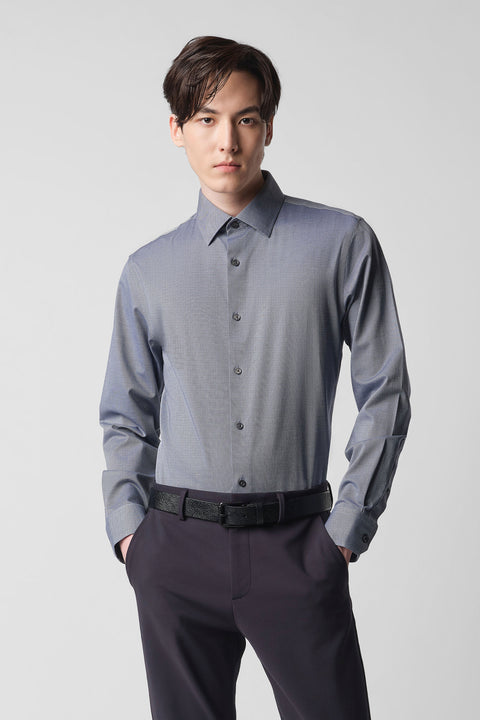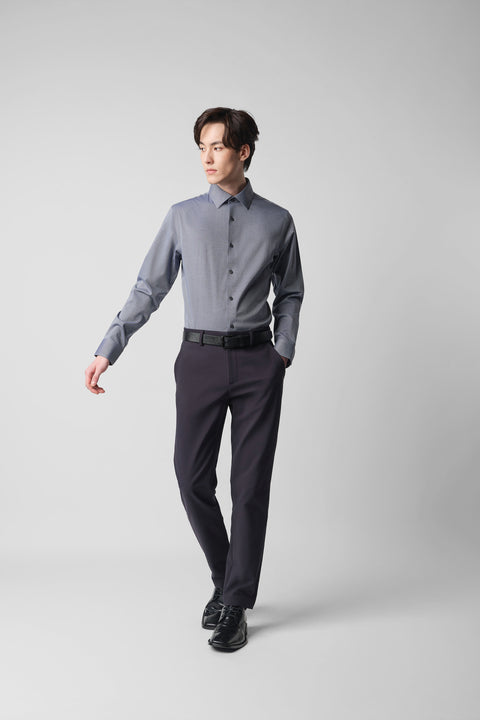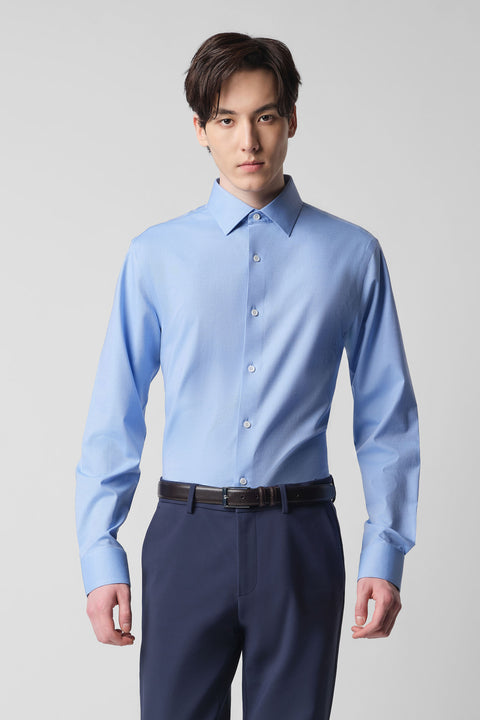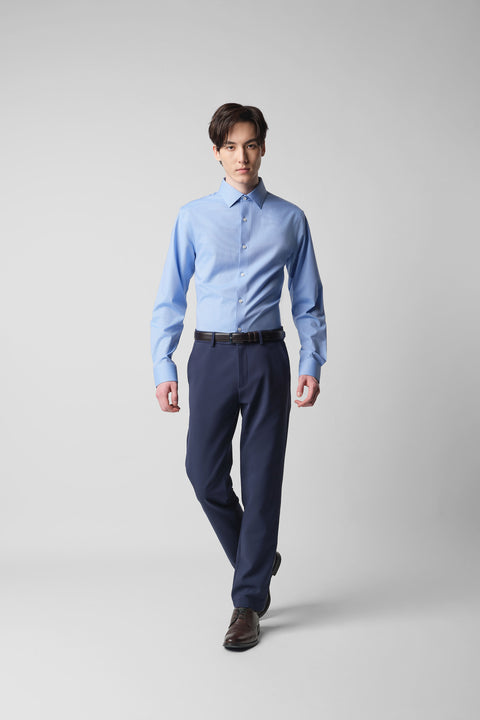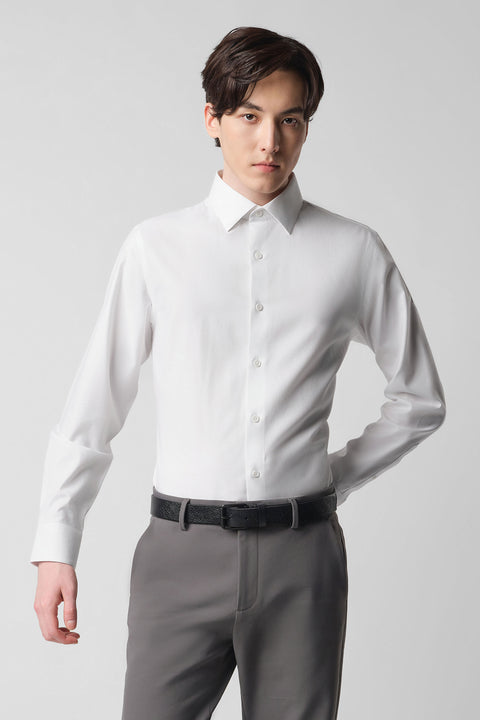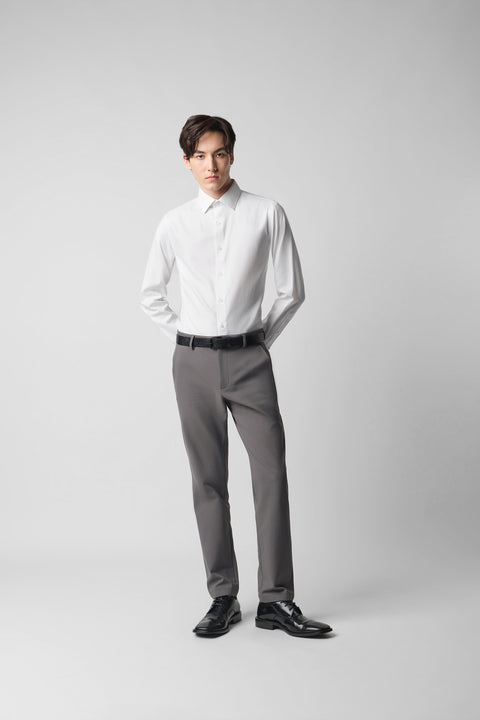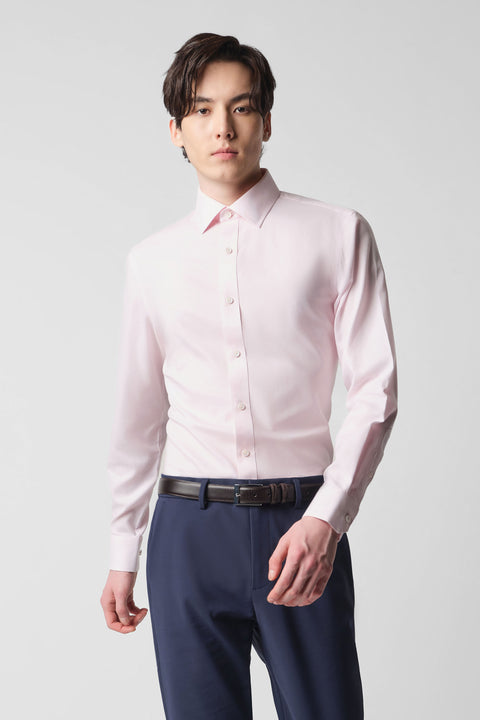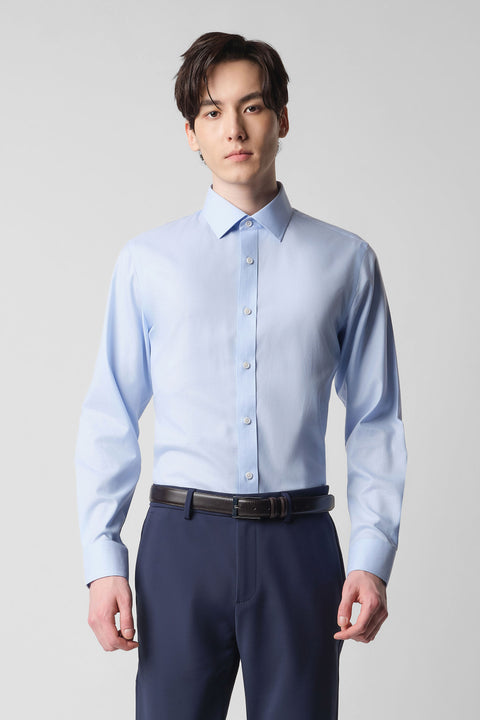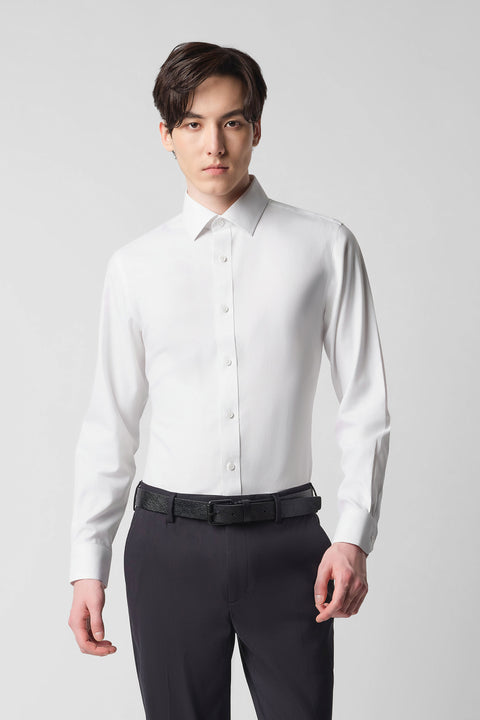Everything You Need to Know About Dress Shirt Fabrics
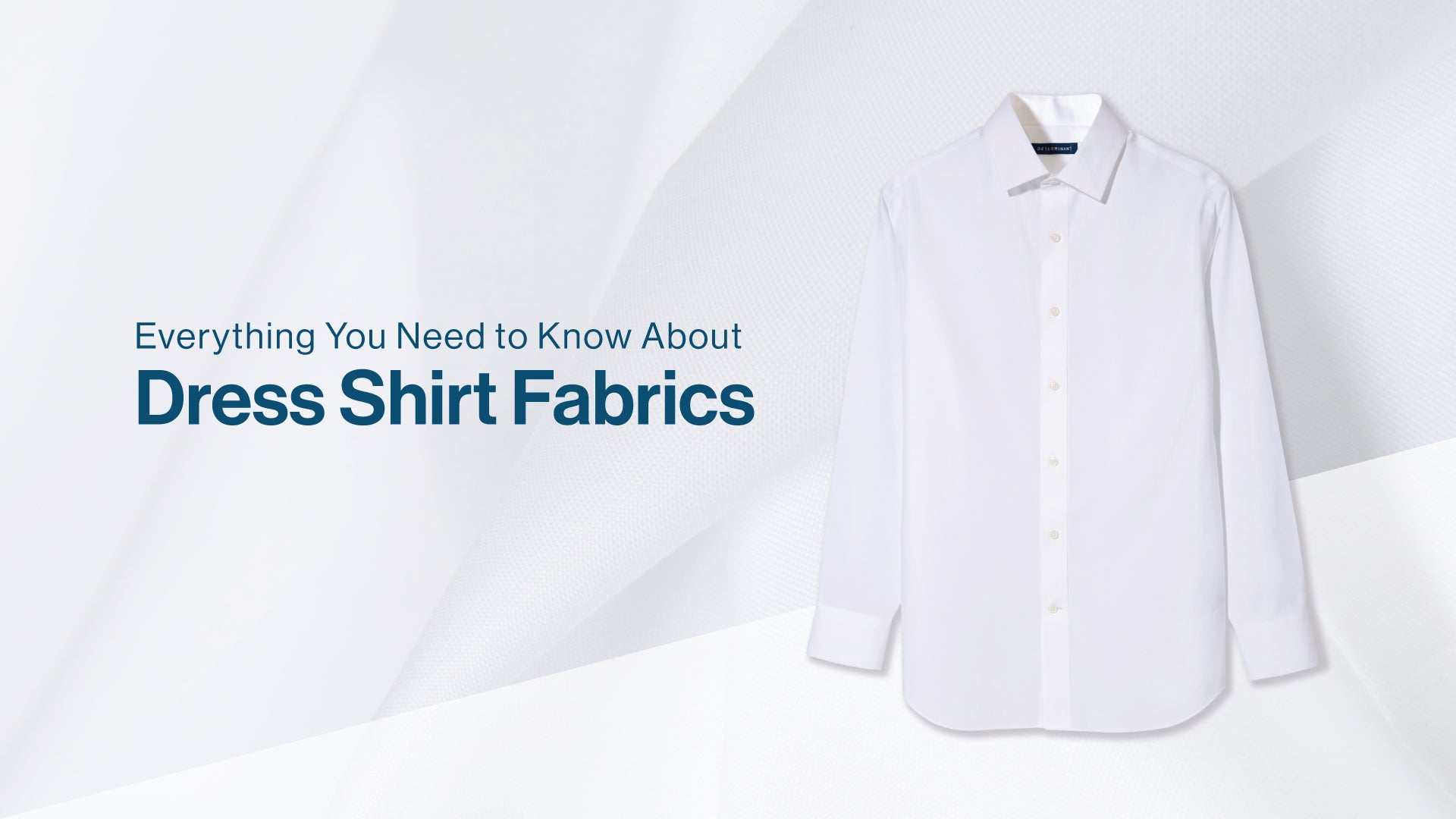
Shopping for a dress shirt can be overwhelming. Luckily, here's the perfect guide to understanding the correct type of fabric for your needs and preferences.
It's Monday again. You're off to start the day with a new dress shirt. Perfect. It's crisp and looks great in the mirror. But as soon as you slip it on, you realize how uncomfortable the fabric feels. You feel constricted, itchy, and hot. Every moment becomes a struggle. You’re not in the mood for work anymore. At the end of your shift, you're exhausted from battling with your clothing all day long. You wish you had invested in a more quality shirt.
Fortunately, you can avoid pesky situations like this by making an informed decision on your next dress shirt purchase. At the end of this article, you’ll learn about the different types of shirt fabrics and how they affect comfort and quality.
The Importance of Dress Shirt Fabrics
When buying clothes, especially a dress shirt, the quality of the fabric should be the first thing to consider. Since there are many types of materials, each with its own pros and cons, picking the right one is vital in ensuring that you purchase something that lasts a long while without compromising comfort and appearance.
Types of Dress Fabric

Cotton
Cotton has been around since ancient times and is still one of the most popular materials used to make clothing. It is known for being lightweight and affordable. One major benefit of cotton is breathability. This natural fiber allows air to pass through, providing superior comfort. However, this also acts as a double-edged sword because its organic nature causes the fabric to wear down faster and makes it prone to shrinkage.
That said, you can choose among several variations of cotton that feature varying degrees of benefits and drawbacks.
-
Standard cotton is the most common type of cotton, valued for its insulation and color retention. However, it is the most susceptible to wrinkling and wearing out.
-
Upland cotton sought because of its versatility. It is a decent fabric that presents colors well. On the downside, it may not be as soft or durable as premium-grade cotton.
-
ELS cotton is made of premium fiber that provides strength, anti-pilling, and wrinkle resistance. It can be quite expensive but certainly worth the investment if you're looking for a high-quality dress shirt. (It is also the standard of DETERMINANT Dress Shirt)
-
Pima cotton is the epitome of luxury fabric-wise, often prized for its superior strength and comfort. This soft, smooth material offers an otherworldly texture ideal for every climate. But like every other premium material, it can break the bank.
Linen
Made from the fibers of the flax plant, linen boasts excellent breathability and absorbency. Air can circulate freely in the hollow fiber, while moisture can be quickly absorbed before feeling damp, making it appealing to warm and humid climate. However, linen is less delicate than cotton and has a rougher texture, which can make it feel coarse to the touch. It will also crease easily and is prone to staining because of its lightweight fibers. This causes it to deteriorate visually after longer periods of time.
Polyester
A synthetic fabric made from polyethylene terephthalate (PET) monomers, polyester is known for its exceptional strength and durability at an affordable price. This fabric easily resists stretching and shrinking, making it a popular choice for dress shirts. Unfortunately, polyester does have a few notable weaknesses, like the tendency to retain odors, such as sweat or smoke. It is also less comfortable compared to natural fabrics like cotton, as it can be stiff and may cause itching or irritation.
Other Fabric
There are many kinds of fabric used on dress shirts. Here's a quick look at some of them:
-
Wool is a natural fabric popularly used for garments due to its soft texture and warmth, making it perfect for winter dress shirts.
-
Silk is known for its superior breathability and lustrous appearance. It is also lightweight and robust, with good dimensional stability.
-
Rayon is an excellent option if you're looking for an elegant dress shirt that still feels light and comfortable against the skin.
Moreover, check out this comprehensive table summarizing the key considerations for the fabric types discussed so far:
| Fabric | Length | Cost | ECO Friendly | Comfort | Durability |
|---|---|---|---|---|---|
| Cotton | Long | Low | Yes | High | High |
| ELS Cotton | Very Long | Very High | Yes | Very High | High |
| Pima Cotton | Very Long | Very High | Yes | Very High | High |
| Linen | Long | High | Yes | High | High |
| Polyester | Short | Low | No | Low | Very High |
| Wool | Long | High | No | Low | High |
| Silk | Very Long | Very High | No | Very High | Low |
| Rayon | Short | Low | No | High | Low |
To Sum It Up
Selecting the correct fabric for your dress shirt cannot be overstated. Picking the wrong material can lead to discomfort and poor fit. Whether you prefer lightweight cotton or luxurious silks, an array of fabrics is available for your style and preference.
Consider factors like climate, weight and care instructions, and durability. Here at DETERMINANT, we are determined to bring you the best quality garments that will unlock your full potential. We hope you can make the right choice with the knowledge you've acquired today.




